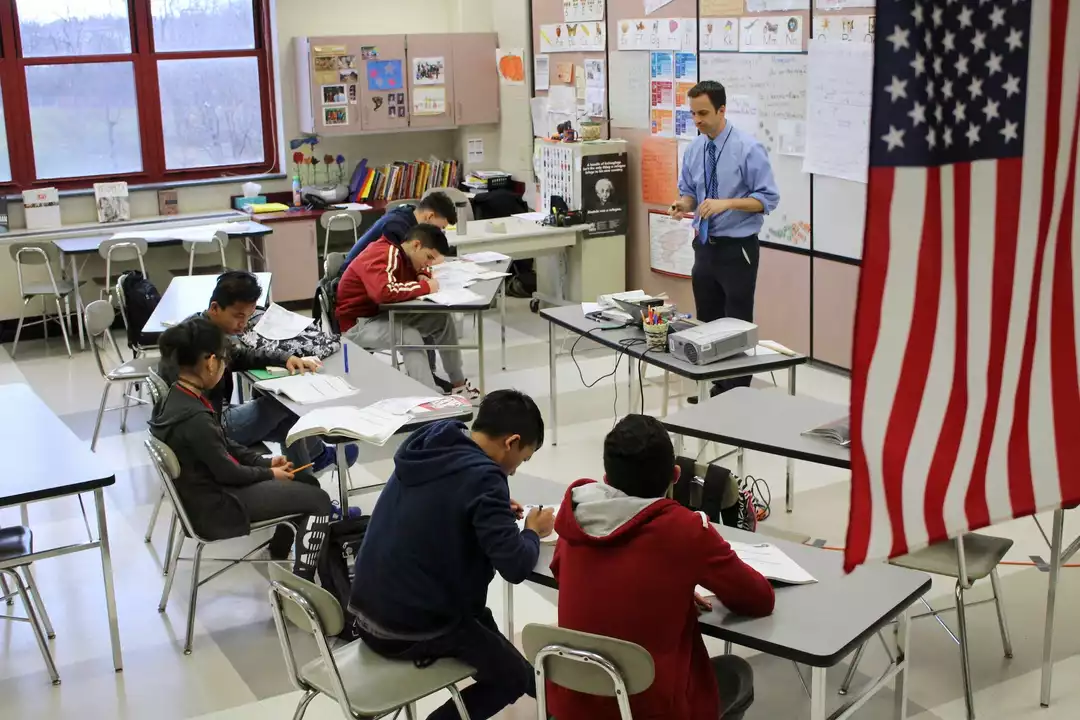How big is the private school market in the US?
 May, 1 2023
May, 1 2023
How big is the private school market in the US?
Understanding the Private School Landscape
Before diving into the size of the private school market, it's essential to understand the broader landscape of private education in the United States. Private schools are educational institutions which are not funded by the government and typically rely on tuition fees, donations, and endowments for their financial stability. They can be religious, secular, or affiliated with specific organizations or educational philosophies. Private schools often have smaller class sizes, more specialized curriculums, and can provide a more personalized learning experience for students.
In the U.S., private schools serve approximately 10% of the K-12 student population, which translates to around 5.7 million students. There are over 33,000 private schools in the country, offering a wide range of educational options for families seeking alternatives to public education. The private school market is diverse and multifaceted, encompassing everything from elite preparatory academies to small, specialized institutions catering to specific student needs.
Private School Enrollment Trends
Enrollment in private schools has experienced some fluctuations over the past few decades. In recent years, there has been a slight decline in the overall percentage of students attending private schools. This can be attributed to various factors, such as the rising cost of tuition, increased competition from charter schools, and improvements in public education. However, it's important to note that these trends vary by region and type of private school. For instance, some urban areas have seen an increase in private school enrollment, while rural areas have experienced a decline.
Despite these fluctuations, private schools continue to be a significant part of the American educational landscape. Many families value the specialized curriculums, individualized attention, and unique learning environments that private schools can provide. Additionally, private schools often boast strong alumni networks and connections to higher education institutions, which can be attractive to parents seeking to give their children a competitive edge in college admissions.
The Financial Side of the Private School Market
As mentioned earlier, private schools rely on tuition fees, donations, and endowments for their funding. Tuition fees can vary widely, with some prestigious institutions charging upwards of $50,000 per year. In general, the cost of private school tuition has been steadily increasing over the past few decades, outpacing inflation and making private education less accessible to some families.
However, many private schools offer financial aid programs to help offset the cost of tuition for families in need. Scholarships, grants, and other forms of financial assistance can make a significant difference for students who might not otherwise be able to afford a private education. In some cases, private schools also receive indirect government funding through voucher programs, tax credits, or other initiatives that support school choice.
Private School Market Segmentation
The private school market can be segmented in several ways, such as by religious affiliation, grade level, and educational philosophy. The largest segment of private schools in the U.S. is religiously affiliated institutions, with Catholic, Protestant, and Jewish schools being the most prominent. These schools often blend religious teachings with traditional academic curriculums, providing students with a faith-based education experience.
Other segments of the private school market include independent schools, which are not affiliated with any religious organization, and specialized schools that focus on specific educational approaches, such as Montessori, Waldorf, or Reggio Emilia. Additionally, there are private schools designed to serve students with special needs, such as those with learning disabilities, autism spectrum disorders, or behavioral issues.
Private School Associations and Accreditation
Many private schools in the U.S. are members of national or regional associations that provide support, resources, and networking opportunities for their member schools. These associations can also play a role in the accreditation process, ensuring that private schools meet certain educational standards and maintain a level of quality in their programs. Some well-known private school associations include the National Association of Independent Schools (NAIS), the Council for American Private Education (CAPE), and the Association of Christian Schools International (ACSI).
Accreditation is an important aspect of the private school market, as it helps to ensure that schools are providing a high-quality education that meets or exceeds national and regional standards. In addition to association-based accreditation, private schools can also be accredited by independent agencies, such as the National Council for Private School Accreditation (NCPSA) or the Middle States Association of Colleges and Schools (MSA).
The Role of Private Schools in the Broader Education Market
While private schools serve a smaller percentage of the American K-12 student population compared to public schools, their presence has a significant impact on the overall education market. Private schools often serve as incubators for educational innovation, experimenting with new teaching methods, curriculums, and technologies that can eventually be adopted by public schools. Additionally, the competition between private and public schools can drive improvements in both sectors, as schools strive to attract and retain students by offering high-quality educational experiences.
Finally, private schools play a critical role in providing educational options for families who may not be well-served by the public school system. This includes students with special needs, those seeking a faith-based education, or those who simply thrive in a more personalized learning environment. As such, the private school market will likely continue to be an important component of the American education system for the foreseeable future.